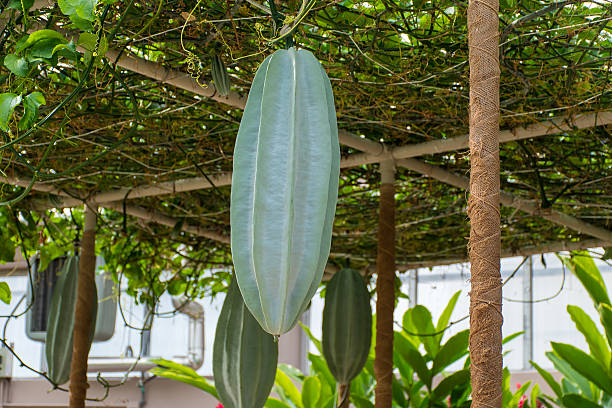When it comes to growing healthy and fruitful apple trees, providing the right nutrients at the right time is key. A well-planned fertilizer schedule ensures that your apple trees receive the optimal nutrition they need throughout the growing season.
In this comprehensive guide, we will delve into the intricacies of creating a fertilizer schedule for apple trees that will promote robust growth, enhance disease resistance, and maximize fruit production. So, roll up your sleeves and let’s get started on this fruitful journey!
Maximize Your Apple Harvest: The Ultimate Fertilizer Schedule for Apple Trees
Why is a Fertilizer Schedule Essential for Apple Trees?
To achieve optimal growth and maximize fruit production, apple trees require a steady supply of essential nutrients. A well-planned fertilizer schedule ensures that these nutritional requirements are met consistently throughout the growing season.
By providing the right balance of nutrients at the right time, you can enhance the overall health of your apple trees, increase their resistance to diseases, and promote the development of high-quality fruits.
Read Also: 15 Best Fertilizers for Okra Farms [Organic & Inorganic]
Understanding the Nutritional Needs of Apple Trees
Before we delve into creating a fertilizer schedule, it is crucial to understand the nutritional needs of apple trees. These fruit-bearing beauties require a balanced blend of macronutrients and micronutrients.
Macronutrients, such as nitrogen (N), phosphorus (P), and potassium (K), are required in larger quantities, while micronutrients like iron (Fe), manganese (Mn), and zinc (Zn) are needed in smaller amounts.
Read Also: 15 Best Fertilizer for Sweet Potatoes Farm [Organic & Inorganic]
Assessing Soil Conditions for Optimal Fertilization
To determine the specific nutrient requirements of your apple trees, it is essential to assess the soil conditions in your orchard.
Conduct a soil test to evaluate the pH level, nutrient levels, and soil texture. This analysis will provide valuable insights into the deficiencies or excesses of certain nutrients, enabling you to tailor your fertilizer schedule accordingly.
Read Also: 15 Best Fertilizers for Onions Farm [Organic & Inorganic]
Preparing the Ground: Fertilizer Application Before Planting
Before planting apple trees, it is crucial to prepare the ground and provide a nutrient-rich foundation. Incorporating organic matter, such as compost or well-rotted manure, into the soil can improve its structure and fertility.
Read Also: 15 Best Fertilizers for Tobacco [Organic & Inorganic]
A balanced fertilizer, such as a 10-10-10 NPK formulation, can also be applied to provide essential nutrients at the time of planting. Spread the fertilizer evenly across the planting area, avoiding direct contact with the tree roots. Gently work the fertilizer into the topsoil, ensuring proper incorporation.
Read Also: 15 Best Fertilizer for Cocoa Farm [Organic & Inorganic]
The First Year: Nurturing Young Apple Trees
During the first year of growth, young apple trees require special care to establish strong root systems and healthy growth. Follow this fertilizer schedule to provide optimal nutrition:
Spring:
Apply a balanced fertilizer with a higher nitrogen content, such as a 12-6-6 formulation, in early spring, just before bud break. This will support vigorous shoot growth and leaf development.
Read Also: 15 Best Fertilizer for Cabbage Organic & Inorganic
Summer:
In mid-summer, apply a slow-release fertilizer to sustain steady growth throughout the season. Look for a formulation with an NPK ratio of 10-10-10 or similar.
Fall:
As autumn approaches, provide a final feeding of a low-nitrogen fertilizer, such as a 5-10-10 formulation. This will encourage root development and prepare the tree for winter dormancy.
Remember to water the trees thoroughly after each fertilizer application to ensure proper nutrient uptake.
Read Also: 15 Best Fertilizers for Carrot Organic & Inorganic: Boost Your Carrot Growth!
Establishing a Strong Foundation: Fertilizing Mature Apple Trees
Once your apple trees reach maturity, their nutrient requirements shift slightly. Follow this fertilizer schedule to maintain their health and productivity:
Late Winter/Early Spring:
As soon as the soil becomes workable in late winter or early spring, apply a balanced fertilizer with an NPK ratio of 10-10-10 or 14-14-14. This will provide a boost of nutrients to support early growth and fruit development.
Late Spring:
Apply a nitrogen-rich fertilizer, such as a 21-0-0 formulation, in late spring, just before or during the period of rapid shoot growth. This will promote healthy foliage and canopy development.
Read Also: 15 Best Fertilizers for Maize: Organic & Inorganic
Mid-Summer:
Provide a slow-release fertilizer with an NPK ratio of 10-10-10 or similar during mid-summer. This will sustain steady growth and ensure optimal nutrient availability during fruit development.
Fall:
As autumn approaches, apply a balanced fertilizer with a lower nitrogen content, such as a 5-10-10 formulation. This will encourage root growth and prepare the tree for the dormant season.
Monitor your apple trees throughout the growing season, adjusting the fertilizer application rates based on their performance and nutrient needs. Remember to water the trees thoroughly after each fertilizer application.
Fine-Tuning the Fertilizer Schedule: Adjusting for Specific Varieties
Different apple tree varieties may have specific nutrient requirements and growth patterns. It is essential to fine-tune the fertilizer schedule based on the characteristics of the apple tree variety you are growing. Consider factors such as growth habit, disease susceptibility, and fruiting behavior when determining the appropriate fertilizer application rates and timings.
Consult local gardening resources, apple tree experts, or agricultural extension offices for specific recommendations on fertilizing different apple tree varieties in your region.
Common Mistakes to Avoid in Apple Tree Fertilization
While creating a fertilizer schedule for apple trees, it’s important to be aware of common mistakes that can hinder tree health and fruit production. Avoid the following pitfalls:
Over-fertilization:
Applying excessive amounts of fertilizer can lead to nutrient imbalances, root burn, and environmental pollution. Follow recommended application rates and avoid the temptation to provide more than necessary.
Under-fertilization:
On the other hand, neglecting to provide adequate nutrients can result in stunted growth, weak trees, and poor fruit quality. Be diligent in adhering to the fertilizer schedule to ensure consistent nutrition.
Incorrect Timing:
Applying fertilizer at the wrong time can disrupt the tree’s growth cycles and may not effectively meet its nutrient demands. Follow the fertilizer schedule outlined earlier in this guide to ensure proper timing and nutrient availability.
Imbalanced Nutrient Ratios:
Using fertilizers with imbalanced nutrient ratios can lead to deficiencies or excesses of certain nutrients. Always choose a balanced fertilizer formulation that matches the specific needs of apple trees.
Neglecting Soil Health:
Fertilization is only one aspect of maintaining healthy apple trees. Neglecting soil health, pH levels, and drainage issues can hinder nutrient uptake. Regularly monitor and address soil conditions to create an optimal environment for tree growth.
Ignoring Tree Symptoms:
Pay attention to any signs of nutrient deficiencies or excesses, such as yellowing leaves, stunted growth, or abnormal fruit development. Adjust the fertilizer schedule or consult an expert if necessary to address these issues.
By avoiding these common mistakes and following a well-designed fertilizer schedule, you can provide your apple trees with the nutrition they need for robust growth and abundant fruit production.
What is the best time to fertilize apple trees?
The best time to fertilize apple trees is in late winter or early spring, just before the soil becomes workable. This allows the trees to receive a nutrient boost as they enter the active growing season.
How often should I fertilize my apple trees?
Young apple trees should be fertilized three times a year: in early spring, mid-summer, and fall. Mature apple trees can be fertilized twice a year: in late winter/early spring and mid-summer.
Can I use organic fertilizers for apple trees?
Yes, organic fertilizers can be used for apple trees. Compost, well-rotted manure, and other organic materials provide slow-release nutrients and improve soil health. Just ensure that the organic fertilizer you choose meets the nutritional needs of the trees.
Should I fertilize apple trees during winter?
It is generally not recommended to fertilize apple trees during winter when they are dormant. Fertilization should occur in late winter or early spring before the trees break dormancy.
Is foliar feeding beneficial for apple trees?
Foliar feeding, or spraying fertilizers directly on the leaves, can be beneficial in providing supplemental nutrients to apple trees. However, it should not replace regular soil fertilization, as the majority of the tree’s nutrient uptake occurs through the roots.
Can I over-fertilize my apple trees?
Yes, over-fertilization can be detrimental to apple trees. It can lead to nutrient imbalances, root burn, and environmental pollution. Always follow recommended application rates and monitor the trees’ response to ensure optimal nutrition.
Conclusion
Creating a well-planned fertilizer schedule for your apple trees is essential to ensure their optimal growth, health, and productivity. By understanding the nutritional needs of apple trees, assessing soil conditions, and following a tailored fertilizer schedule, you can provide the necessary nutrients for robust growth, disease resistance, and bountiful fruit production.
Remember to adjust the fertilizer application rates and timings based on the specific needs of your apple tree variety. Avoid common mistakes such as over-fertilization or neglecting soil health, and pay attention to any signs of nutrient deficiencies or excesses.
With proper care and attention to their nutritional needs, your apple trees will reward you with a plentiful harvest year after year.



